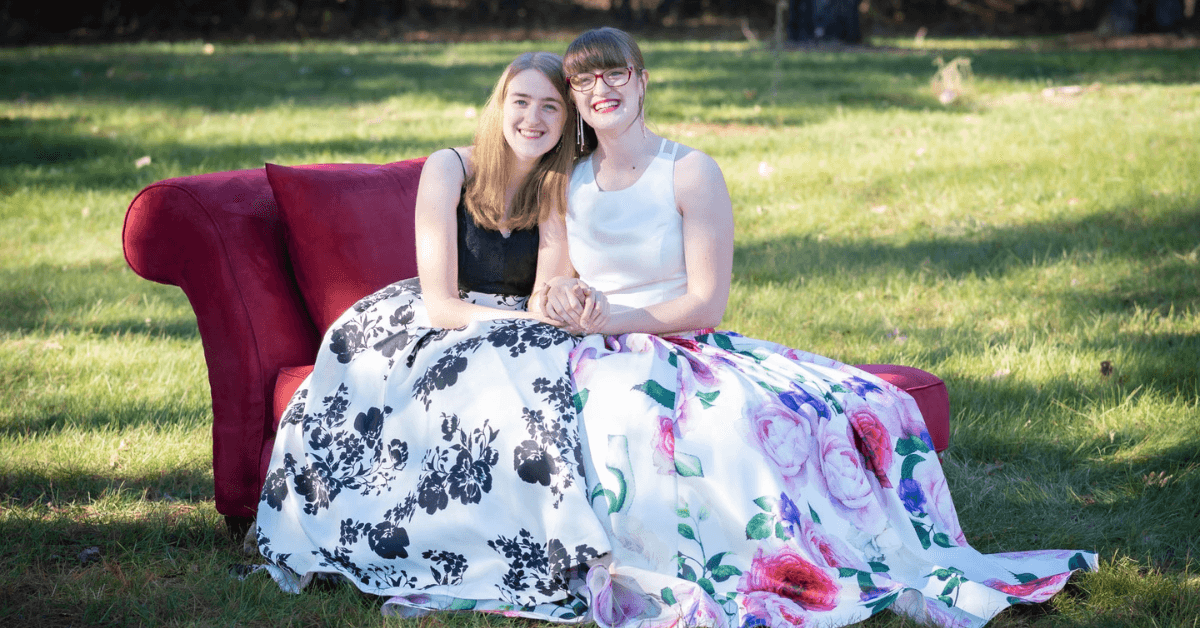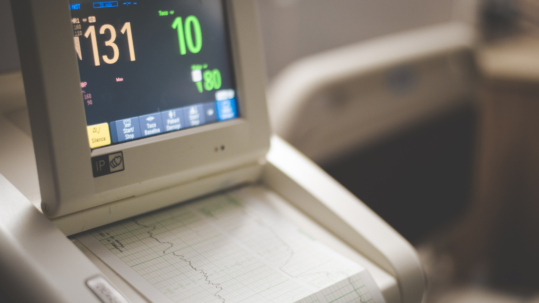
30 Dec Sibling Interview: What It’s Like Supporting Someone With a Chronic Illness
My sister is a rockstar.
I know I write a lot about my own journey with chronic illness, and I can often focus on the ways that I am able to manage my own symptoms and challenges. But what I don’t talk much about is the ways that my family makes it possible to have some level of autonomy. They are the ones who purchase, prepare, and serve me food. They are the ones bringing my laundry to the basement and bringing it back up again. They are the ones who take care of the necessities for life so that I can spend my energy attending medical appointments, engaging in social gatherings, and doing the things I love (like writing articles for this beautiful blog!).
My sister has been a huge part of these practical day-to-day needs, but she has also been my confidant, my personal comedian, and my adventure buddy. We have navigated diagnoses, failed treatments, and enormous life changes, yet through it all she has been by my side.
So that said, I wanted to take some time and get her thoughts on life, illness, and what it means to support a loved one having medical issues.
What is it like watching your sister navigate symptoms and the medical system?
“It’s a blend of feelings for sure. Some days I feel utterly helpless, especially when I don’t know how to help her in certain situations, or when I think back to my own experience with the suckiness and vulnerability of having symptoms (like feeling like a puddle thanks to gravity). I’m glad I can be there for her as physical and emotional support when I do know ways I can be helpful, especially cracking jokes and making her laugh when things get tense or start to feel hopeless.
I am super glad that she has recently found a medication that helps – it’s cool because we like to give each other hugs and I can usually feel her heart pounding crazy fast, and that happens a lot less now.
As for the medical system, it’s tough seeing her have to jump through hoops and deal with the frustration of bureaucracy and doctor miscommunication. There are a lot of details to wrangle together, and she is constantly needing to advocate for herself in order to get what she needs. It’s also hard watching her face testing and appointments, because I know we share a similar fear/distaste for going to the doctor. But even so, it has been comforting to see her courage as she makes the necessary steps towards finding out what’s wrong and how to fix it. She’s determined and fights for herself fiercely, but also balances that with grace, understanding, and making the best use of her energy.”
How do you think it has impacted the sibling relationship?
“It’s a strange sort of role reversal watching her go through these struggles, because growing up, I was the one with mystery medical issues. There’s a fair amount of grief as I navigate the flashbacks of remembering my own struggles, and I think about how it must have felt when we were younger and she was in my position. Both sides are equally difficult in their own ways, and there’s a sense of reverence knowing that the physical strength and stability that I am able to offer her when she’s struggling has not always been the case.
But that said, we truly make the most of life despite her limitations. We like to laugh and subscribe to the idea that “suffering bonds people together.” It’s not conventional sibling bonding, but I’d say that navigating her mobility limitations has provided an enormous amount of entertainment, inside jokes, and genuine fun. I have pushed her around in grocery store shopping carts, rescued her from being trapped in her house after a snowstorm via a sled, maneuvered her chariot (a borrowed pumpkin wagon) through a corn maze at a pumpkin patch, and “expertly” navigated the aisles of Hobby Lobby with an extra wide wheelchair. We do our best to embrace the awkward comments from strangers and laugh at the gawkers who can’t wrap their heads around a young person with a cane (or disabled parking tag, or any number of things). Sometimes the situations and comments can be a bit ludicrous but jumping into the fray and recognizing the hilarity of it all is my kind of sibling superpower :)”
What are some ways you help with POTS specifically?
“I think most of my POTS tasks involve retrieving things – especially when she is having a blood pressure crash or a flare in general. Water, electrolytes, medication, phone, food, books, computer, cane, backpack, blood pressure cuff, etc. Driving is probably the other big one, since she’s not always able to. I drive her to appointments, the grocery store to retrieve things we’ve run out of, or to social gatherings. I’m basically a bipedal, English-speaking, opposable thumbed, driver’s license-holding service dog.”
How do you process the effects of chronic illness and stay positive when things get hard?
“I process a lot through humor, even when it’s maybe not an appropriate time. I’d be lying to say I don’t also process through tears occasionally. I remember one particular time right before Thanksgiving that was especially rough. I didn’t realize just quite the extent of the difficulty until I went to bed and I gave way to the tears. Watching her walk through something (specifically that night) that seemed so similar to what I had walked through, of course with her own flavor of medical stuff, was tough. I think it would be a lot harder to stay positive or have a good mindset in all of this if I didn’t find comfort in trusting in the Lord as being good and our ultimate healer (even if it isn’t when we want). If we only had the medical system to trust in, this whole situation would be a lot tougher pill to swallow.”
What is your favorite memory together related to chronic illness?
“I think the best times for me have been when I get to drag her into life. It’s less about the big moments and more about the small moments we share as we navigate this journey. We are all up in each other’s business, living life together, and I’m along for the ride. I love her to bits and I am grateful for the time that I’ve had to be able to love on her and support her through the lows and celebrate with her through the highs.”
Summary
Having chronic illness can oftentimes make a person feel like they are a burden to their friends and family. There is no doubt that my medical issues makes life more complex and a bit harder at times, but my relationship with Sierra is proof that love bears, hopes, and endures all things.
Love is patient and kind; love does not envy or boast; it is not arrogant or rude. It does not insist on its own way; it is not irritable or resentful;it does not rejoice at wrongdoing, but rejoices with the truth. Love bears all things, believes all things, hopes all things, endures all things. 1 Corinthians 13:4-7
I am blessed beyond measure to be able to call Sierra my sister. She has been an encouragement to me throughout this whole process, and I hope her perspectives were blessing and encouragement to you as well.
-
Making a Full Physical Recovery – A Day-by-Day Miracle
“You should exercise more.” A brutal statement. One I had tried to fulfill on my own, and time and time again, had failed. It was a frustrating piece of advice from my doctor, and felt so out of reach as I navigated my bouquet of chronic illnesses....
27 June, 2024 No comment -
Awesome Recovery News!! And Why I No Longer Plan To Write About My Symptoms
I am so excited to report that after graduating from the 3-week Pain/Symptom Rehabilitation Center at Mayo Clinic in Rochester and continuing the program at home, I am nearly 100% recovered!...
05 March, 2024 3 Comments -
What is the Valsalva Maneuver like?
The Valsalva maneuver is EASILY the most fascinating thing I’ve gotten to do in this entire medical adventure. On the surface, it’s a fairly quick and easy part of autonomic testing, but underneath, it’s one of the coolest and most complicated mechanisms of the human body that I’ve encountered. ...
17 January, 2024 3 Comments






No Comments